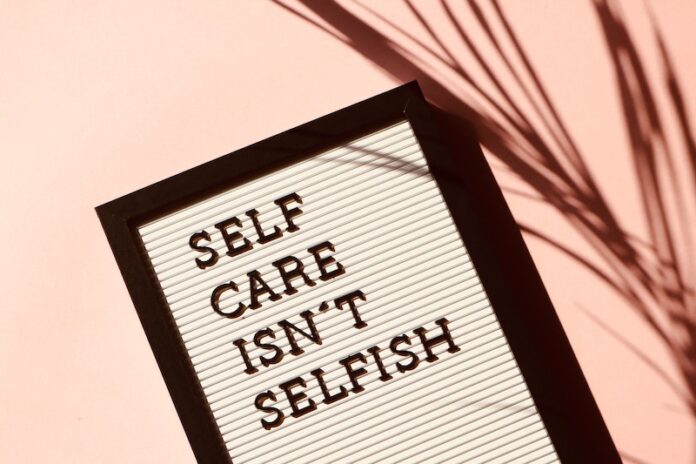Mental health is a hot topic right now. With so many people struggling, it’s more important than ever to create campaigns that raise awareness and promote positive mental health. In this blog post, we will outline an 8-step strategy for creating a successful mental health campaign. Let’s get started!
1. Hiring a mental health marketing agency
There are a lot of moving parts when it comes to launching a successful mental health awareness campaign. From developing messaging to designing creative assets, there’s a lot to consider. That’s why hiring a mental health marketing agency can be a great first step. A good agency will have experience running similar campaigns and will be able to offer valuable insights and guidance. The Lead to Recovery professionals notes that when working with an agency, you should “look for someone who has a proven track record in the field of mental health marketing.” This will help ensure that your campaign is in good hands.
2. Define your target audience
When it comes to mental health, there is no one-size-fits-all solution. It’s important to tailor your campaign to a specific audience. This will help ensure that your messaging is relevant and resonates with your target market. Are you trying to reach people who are struggling with anxiety? Or those who are caring for someone with a mental illness? Defining your target audience from the outset will help you create more effective marketing materials. Some people think that mental health only affects a small segment of the population, but the reality is that it touches all of us in some way. Keep this in mind as you define your target audience.
3. Set your campaign goals
Before you launch your mental health awareness campaign, it’s important to set some goals. What do you hope to achieve with your campaign? Are you trying to increase awareness of mental health issues? Or are you hoping to reduce the stigma around mental illness? Once you have a clear idea of what you want to accomplish, you can start developing your strategy. While it’s important to set goals, don’t get too bogged down in the details. Remember, your campaign can always be adjusted as you go.
4. Choose your channels
Now that you know who you’re targeting and what you hope to achieve, it’s time to start thinking about how you’ll reach your audience. There are many different channels you can use to promote your campaign. Social media is a great way to reach a large number of people with your message. You can also use traditional channels like television or radio. If you’re not sure where to start, try experimenting with different channels and see what works best for your campaign.
5. Create compelling content
Once you’ve chosen your channels, it’s time to start creating content. This is one of the most important aspects of your campaign. Your content should be compelling and relevant to your target audience. It should also be consistent with the overall message of your campaign. If you’re not sure where to start, try thinking about the pain points of your target audience. What are they struggling with? How can you help them? Answering these questions will help you create content that resonates with your audience.
6. Timing is everything
Another important aspect of your mental health awareness campaign is timing. You’ll need to consider when to launch your campaign and how long to run it. If you’re not sure when to start, think about any upcoming events or holidays that might be relevant to your campaign. For example, if you’re launching a campaign about depression, you might want to time it around World Mental Health Day. Keep in mind that you don’t have to launch your entire campaign at once. You can stagger your content over time to keep people engaged.
7. Track, measure, and adjust
Once your campaign is up and running, it’s important to track your progress. This will help you see what’s working and what isn’t. There are many different metrics you can use to measure your campaign’s success. Some things you might want to track include reach, engagement, and conversion rates. If you’re not seeing the results you want, don’t be afraid to make adjustments to your campaign. Sometimes all it takes is a small change to see a big difference in results.
8. Keep the conversation going
Mental health awareness campaigns can be a great way to start a conversation about mental health. But the conversation doesn’t have to end there. Once your campaign is over, you can continue the conversation by hosting events, starting support groups, or creating other resources. The important thing is to keep the conversation going. Mental health should be talked about openly and without stigma. By continuing the conversation, you can help make that happen.
Why is mental health awareness important?
Mental health awareness is important because it helps to reduce the stigma around mental illness. It also increases understanding of mental health issues and can lead to early detection and intervention. Mental health awareness can also help people feel more comfortable talking about their mental health. When people feel comfortable talking about their mental health, they’re more likely to seek help when they need it.

What are some ways to get involved in mental health awareness?
There are many ways you can get involved in mental health awareness. You can start by educating yourself and others about mental health issues. You can also get involved in campaigns and other initiatives that aim to raise awareness of mental health issues. And you can always talk about your mental health to help break the stigma. Some people also choose to get involved in support groups or volunteer with mental health organizations.
As we have seen, mental health awareness is important because it helps to reduce the stigma around mental illness. It also increases understanding of mental health issues and can lead to early detection and intervention. Mental health awareness can also help people feel more comfortable talking about their mental health. So, if you are thinking about starting a mental health awareness campaign, consider following the tips above!

